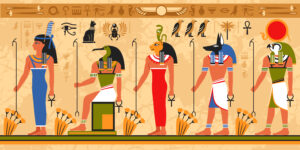Purim is the Jewish holiday taken from the book of Esther that reminds us that God is always at work even when He seems absent, and His plans for you can never be thwarted!
It is traditional for Jewish people to read the whole book of Esther aloud at Purim, with boos and noise every time the bad guy is mentioned – feel free to join us! It is difficult to find a more dramatic, fast-paced, riveting, and suspense-filled plot than this one. The feast will be celebrated with fancy dress costumes (because the theme of “hiding” goes right through the story of Esther), there will be parties, special “hamantaschen” cookies, and people will give gifts to each other, and to the poor.
“Because on those days the Jews rid themselves of their enemies, and it was a month which was turned for them from sorrow into gladness and from mourning into a holiday; that they should make them days of feasting and rejoicing and sending portions of food to one another and gifts to the poor.” (Esther 9:22)
The feast commemorates the deliverance of the Jewish people who were in exile in the ancient Persian Empire. Purim means “lots” and refers to the lottery that Haman used to choose the date for the planned (and thwarted) massacre of the Jewish people.
This book is so very relevant to us today as it reminds us that the destinies of our nations as well as our personal destinies are safely placed in God’s hands, and no matter how hopeless a certain situation may look He can reverse it in a split second.
Although God’s name is not mentioned throughout the whole story, it is very obvious that His invisible hand is orchestrating times and events. We clearly see God’s interaction with man’s will and His power to give wisdom and help in times of danger.
It is interesting that in the book of Esther the salvation of the Jewish people does not come through a supernatural miracle like parting of the Red Sea, or the crumbling of the walls of Jericho.
What Purim reaffirms to Christians and Jews alike is the fact that the everyday life is infused with God’s presence and is under His control.
He used the circumstances in Esther’s life, as he uses the decisions and actions of all humans to work out His divine plans and purposes. This story renews our belief in a God who acts and continues to perform miracles. We can therefore trust in His sovereign care over every aspect of our lives. And knowing that we believe in a God of miracles is indeed a good reason for celebration, at Purim or at any time of year!
In the book of Esther, Mordecai ‘happened’ to be at the right place at the right time and found out about a plot to kill the king. It was reported to the king and Mordecai’s noble act was recorded but no reward was given to him at that point. In fact, quite the opposite was brewing. The evil courtier, Haman, was so outraged that Mordecai would not bow before anyone but God that he plotted to kill him!
However, when Haman had prepared the gallows to hang Mordecai, an unexpected twist occurs in the story: the KING COULD NOT SLEEP! Maybe Haman’s noisy carpentry work of building extremely high gallows deprived him of sleep? One way or another, his insomnia was God’s new method of bringing deliverance.
God always accomplishes what He promises and He often uses human hands to do the job.
The king orders for the scrolls of chronicles to be brought to him, probably hoping to fall asleep while listening to the boring record. And it is at that point that Mordecai’s deed is finally noted and fully appreciated, and all the vicious plans of Haman to destroy the Jewish nation are thwarted. Sometimes God delays blessings and rewards but eventually they come and become a double blessing to us.
The plot of the story develops in a way that is opposite to what one would expect. But this is how God often works in our lives.
Sometimes He allows the enemy to triumph for a season, but then He steps in and upsets the enemy’s work and gives us a greater victory than we would have known had He not allowed the enemy seemingly to triumph in the first place. His solutions cannot always be anticipated, but His plans cannot be thwarted. We can depend on Him to fulfill His promise even when all roads leading to it are closed. This is the main message for us in the book of Esther. The emphasis is on the power of fasting and prayer. King’s sleeplessness was preceded by Esther’s and all of the Jewish people’s fasting. We need to pray and believe the Lord will act on behalf of our countries, and us personally.
“In the Lord’s hand the king’s heart is a stream of water that he channels toward all who please him” (Proverbs 21:1).
An interesting detail to contemplate: the battle against Amalek was led by Saul who was a Benjamite, a son of Kish (1 Samuel 9:1). Saul failed. But it was Mordecai, also a Benjamatie and a son of Kish, through whom the Lord accomplished His plan. It is probably no coincidence that God uses a descendant of the same family line to redeem the past mistake.
Purim reminds us of our human frailty and vulnerability. We see how close all the Jewish people in the Persian Empire came to being wiped out overnight at the whim of an arrogant, impulsive leader. The future existence of Israel, and ultimately the appearance of the Messiah, was jeopardized by Haman’s verdict to destroy the Jewish nation. Yet, Purim also affirms that while oppressors come and go, God’s promise and covenant with us is everlasting. Happy Purim!
















